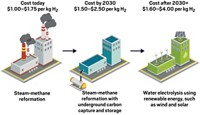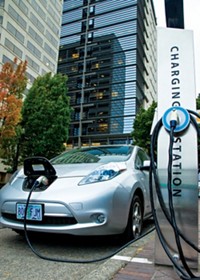Advertisement
Grab your lab coat. Let's get started
Welcome!
Welcome!
Create an account below to get 6 C&EN articles per month, receive newsletters and more - all free.
It seems this is your first time logging in online. Please enter the following information to continue.
As an ACS member you automatically get access to this site. All we need is few more details to create your reading experience.
Not you? Sign in with a different account.
Not you? Sign in with a different account.
ERROR 1
ERROR 1
ERROR 2
ERROR 2
ERROR 2
ERROR 2
ERROR 2
Password and Confirm password must match.
If you have an ACS member number, please enter it here so we can link this account to your membership. (optional)
ERROR 2
ACS values your privacy. By submitting your information, you are gaining access to C&EN and subscribing to our weekly newsletter. We use the information you provide to make your reading experience better, and we will never sell your data to third party members.
Environment
Shifting Ship Power In Port Reaps Air-Quality Benefits
Pollution Prevention: Replacing onboard generators with grid electricity from shore would yield a net benefit to society
by Jyllian Kemsley
January 18, 2016
| A version of this story appeared in
Volume 94, Issue 3
Requiring more ships that stop in U.S. ports to receive power from the onshore electric grid rather than by burning diesel in onboard generators would be a cost-effective way to improve air quality, reports a team led by Parth Vaishnav of Carnegie Mellon University (Environ. Sci. Technol. 2015, DOI: 10.1021/acs.est.5b04860). When in port, ships commonly use diesel generators to provide necessary power, such as for lights and refrigeration. Supplying ships with power through an electric cable would reduce harmful emissions but require new equipment for ports and ships. California already requires that 50% of ship stops at ports in the state use power supplied from shore; that proportion will rise to 80% in 2020. Vaishnav and colleagues modeled the costs of the retrofits as well as the benefits of air quality improvements—reducing NOx, SO2, CO2, and particulate matter—if the requirements extended nationwide. Depending on assumptions they made about how pollutants disperse and react in the atmosphere, they found that retrofitting one-quarter to two-thirds of vessels would yield a net societal benefit of $70 million to $150 million annually from reducing pollution.




Join the conversation
Contact the reporter
Submit a Letter to the Editor for publication
Engage with us on Twitter